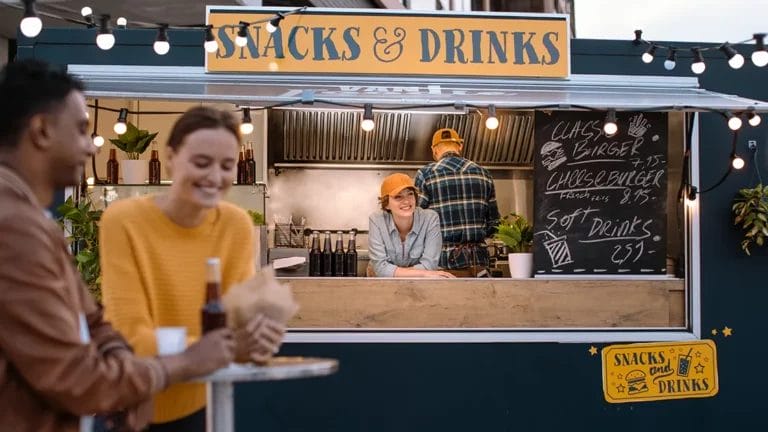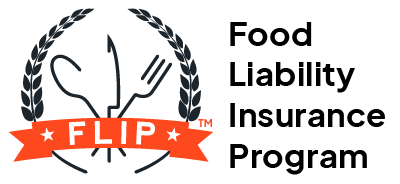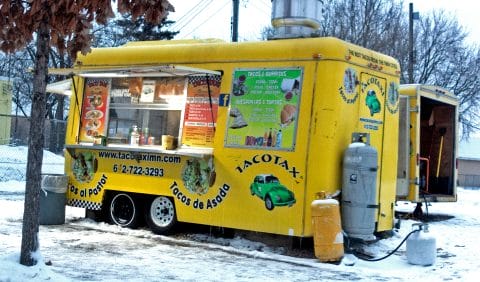Starting a food truck in the Land of 10,000 Lakes is an exciting and rewarding venture. However, you’ll need to apply for licenses, obtain the necessary permits, and meet Minnesota food truck regulations before hitting the road.
Whether you’re serving customers at a local food truck festival or selling to the crowds in the Twin Cities, this guide has everything you need to know to get started.
Understand Food Truck Requirements in Minnesota
Before applying for permits and licenses, Minnesota food truck owners need to meet a few key requirements:
- Business name: Your name should be unique, easy to remember, and help customers understand what you’re selling.
- Business classification: This determines the structure of your business and how you pay taxes. Options include a sole proprietorship, limited liability company (LLC), joint venture, etc.
- Employer identification number (EIN): This unique, nine-digit number identifies your business for tax purposes. Register with the Internal Revenue Service (IRS) to receive your EIN.
- Certificate of Insurance (COI): A COI serves as proof of your insurance and contains coverage and policy limit details. Many food truck events in Minnesota require a COI to apply.
- Plan Review Application: Required before obtaining a license. This review process determines your compliance with the Minnesota Food Code. Local Minnesota food truck laws require owners to submit a plan review application.
- Business plan: Developing a solid business plan is crucial when starting a food truck business. Additionally, banks and other lenders may ask to see your plan before issuing loans or grants.
Pro Tip: Minnesota Department of Agriculture offers information on creating a business, including an in-depth roadmap for establishing Minnesota food trucks.
Food Truck Licenses in Minnesota
Before setting up shop, you’ll need the necessary licenses and permits.
While Minnesota does not offer a state-level business license, individual counties and cities may have specific permits and license regulations. Check with your local government office to ensure you comply with all requirements.
Business License
- Authorizes your food truck to operate in the city where you do business. A separate license is often required for each city.
- Cost: Varies by city/county
- Where to get it: Minnesota Department of Health
Mobile Food Unit License
- Some local governments require this license to operate. Your menu and location of operation dictate which jurisdiction you fall under.
- Cost: $85
- Where to get it: Minnesota eLicense
Seller's Permit
- Also known as a Tax ID Number in Minnesota, this permit allows you to collect sales tax.
- Cost: $10
- Where to get it: Minnesota Department of Revenue (MDR) e-Services
Retail Food Handler License
- Issued after approval of your plan review
- Cost: $50
- Where to get it: Minnesota Department of Agriculture
Follow Minnesota Food Truck Laws
While it’s easy to get lost in the excitement of starting a food truck, Minnesota has several laws and regulations to keep you, your employees, and your customers safe.
Some of the most important laws to keep in mind include:
- Commissary agreement: If your local health department determines your food truck is not “self-sufficient,” you will need to rent a commercial kitchen or commissary for food prep and/or storage.
- Fire code compliance: Food trucks in Minnesota are subject to fire safety inspections from state or local officials to ensure safe operations.
- Zoning restrictions: Minnesota cities have their own zoning laws that determine a food truck’s location, hours of operation, and proximity to other businesses.
- Health inspections: After the initial pre-licensing health inspection of your food truck, state and/or local health departments conduct annual inspections to determine your continued eligibility for licensing.
Pro Tip: Use our health inspection checklist to make sure your truck is prepared and ready to pass!
Get Minnesota Food Truck Insurance
After investing so much time and money in your food truck, the last thing you want is the burden of legal expenses. Whether it’s paying a customer’s hospital bill or covering the cost of accidental damage to another vendor’s truck, insurance acts as your safeguard.
Imagine working at the Street Faire at the Lakes when a customer trips over the generator cord and sues you for medical expenses. Or, a grease spill stains the venue’s parking lot, and you’re left covering the cleanup cost. To put things into perspective, the average food truck claim costs $6,271.
That’s where Minnesota food business insurance from Food Liability Insurance Program (FLIP) comes in. Our policy is designed to cover some or all of the costs associated with claims like these, giving you more time to focus on running your business.

Learn the Cost of Starting a Food Truck in Minnesota
According to the U.S. Chamber of Commerce, the average food truck entrepreneur spends over $28,000 annually to comply with legal requirements, such as permits and licensing.
Additionally, there are other costs for purchasing and operating a food truck in Minnesota:
- Food truck
- New: $90,000–$180,000
Used: $50,000–$80,000
- New: $90,000–$180,000
- Cooking equipment
- Grill/griddle: $1,000-3,000
Deep fryer: $500-2,000
Oven: $1,500–$5,000
- Grill/griddle: $1,000-3,000
- Refrigeration
- Refrigerator/freezer: $1,500–$3,500
Prep table: $200–$1,000
- Refrigerator/freezer: $1,500–$3,500
- Safety and sanitation
- Commercial sink: $1,000–$2,500
Handwashing sink: $200–$500
Fire suppression system: $1,000–$2,500
- Commercial sink: $1,000–$2,500
- Technology
- Point of Sale (POS) system: $500–$1,500
Inventory management software: $20–$200 per month
- Point of Sale (POS) system: $500–$1,500
Pro Tip: Ensure you’re breaking even with a smart menu pricing strategy that covers your expenses and earns a profit!
Sell at Minnesota Food Truck Festivals
A great way to reach customers and network with entrepreneurs is by attending a food truck festival. Minnesota is home to a number of these popular events, though you need to follow their zoning and permit laws to attend.
Check out the following Minnesota food truck festivals:
- Minneapolis Food Truck Festival
- Anoka Food Truck Festival
- Cottage Grove Food Truck Festival
- Apple Valley Food Truck Festival
Pro Tip: Competition for festival spots can be fierce, especially during the peak spring and summer months. Learn essential tips for getting your food truck into festivals and increasing your chances of getting accepted!
FAQs About Starting a Food Truck in Minnesota
Are There Specific Zoning Regulations for Food Trucks in Minnesota?
Yes, though each city in Minnesota has its own regulations, which often include:
- Hours of operation: Food truck owners must comply with all local rules regarding business hours
- Parking: Some cities, such as Minneapolis, have strict parking regulations that food truck owners must adhere to during business hours
- Proximity to other businesses: Cities often enforce restrictions on how close food trucks can park to businesses and residential buildings
Where Can I Park My Food Truck in Minnesota?
Each Minnesota city has rules and regulations regarding where you can park, how long you can stay, and whether you’ll need a permit. If you’re parking on private property, you must have express written permission from the property owner.
Does Minnesota Have a Food Truck Association I Can Join?
Yes, the Minnesota Food Truck Association (MFTA) is a community of food truck owners that provides support, advocacy, and educational resources to its members. The organization also regularly promotes its members through social media to help generate leads for upcoming events.

Clint Hale
Ohio-based copywriter Clint Hale leverages his experience as an enthusiast of regional eateries and fast-casual dining. He also holds a B.A. in Communication Studies from Kent State University. Before working for FLIP, he was a Senior Copywriter at an SEO marketing agency. Fully trained on the ins and outs of Food Liability Insurance Program, Clint writes to bridge the gap between food and beverage entrepreneurs and the policies that protect their businesses.
Ohio-based copywriter Clint Hale leverages his experience as an enthusiast of regional eateries and fast-casual dining. He also holds a B.A. in Communication Studies from Kent State University. Before working for FLIP, he was a Senior Copywriter at an SEO marketing agency. Fully trained on the ins and outs of Food Liability Insurance Program, Clint writes to bridge the gap between food and beverage entrepreneurs and the policies that protect their businesses.

